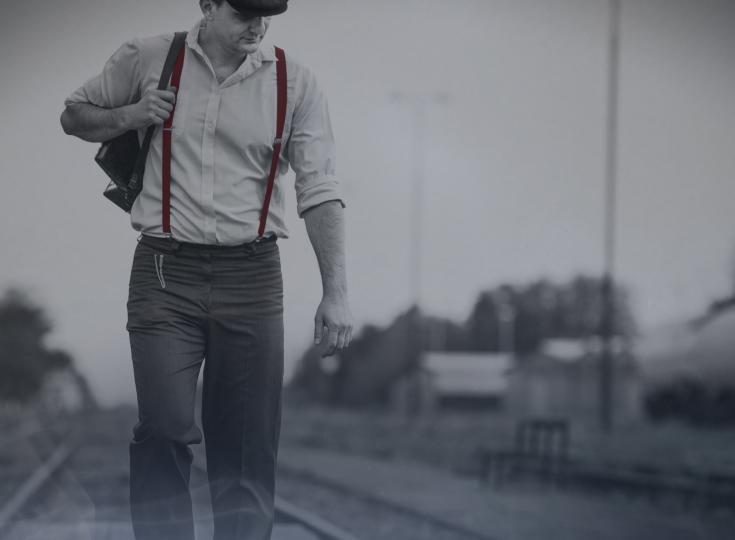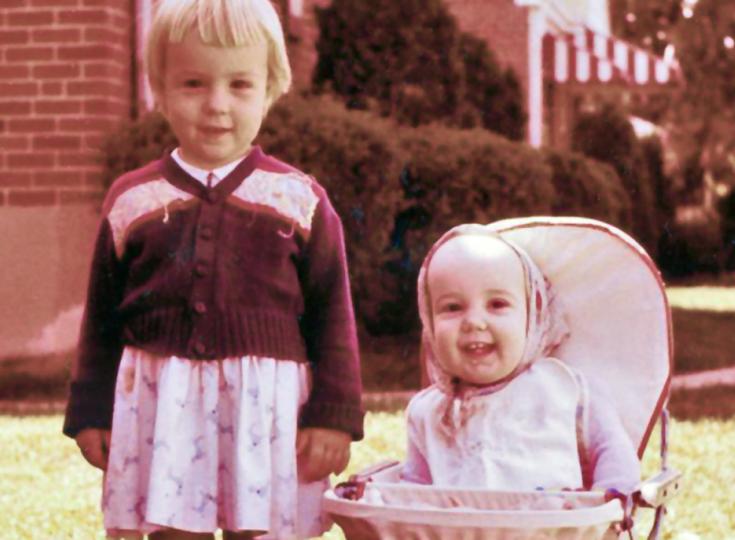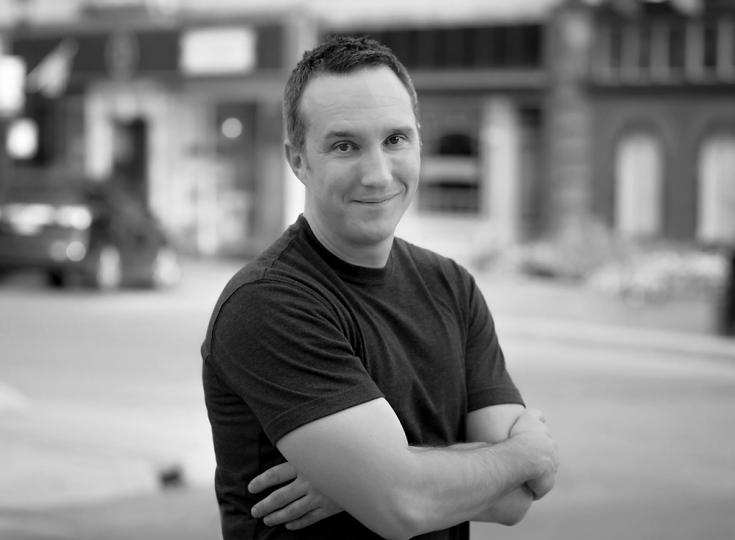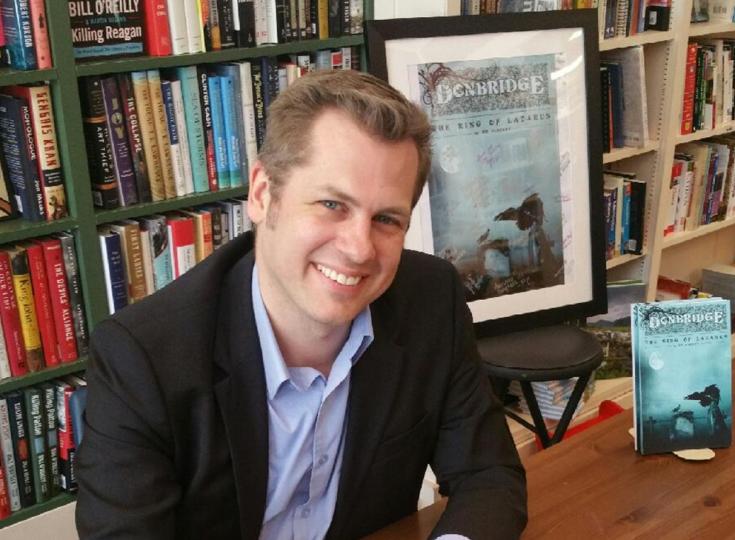Caroline Woods - Exploring Pre-WWII Germany
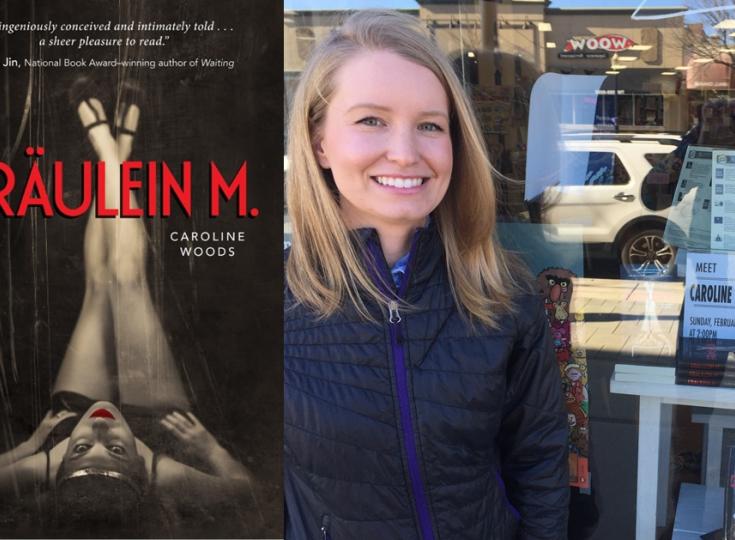
While studying the art of the Weimar Republic, Caroline Woods realized that there was a time period in history that we actually don't hear much about. This inspired her to write Fraulein M., a book that explores the cabaret underground, transgender women and deeper themes such as family bonds and compromises made for survival. As our Author of the Day, Woods tells us all about it.
Please give us a short introduction to what Fraulein M. is about
Fraulein M. follows a pair of sisters in 1930s Berlin who leave the Catholic orphanage of their childhood under very different circumstances. Berni becomes a cigarette seller of the cabaret underground, befriending a young transgender woman and Jewish landlady, while Grete takes a job as a maid to a Nazi family and falls in love with their son. The decisions the sisters make as Germany falls toward the Third Reich have drastic consequences, changing their relationship forever.
The story also travels to Janeen Moore, a teenager in 1970s South Carolina who has just lost her beloved father. She's the daughter of one of the main characters (but I won't reveal who!).
What inspired you to write a story that takes place in pre-WWII Germany?
The art of the Weimar Republic, particularly portraits of transgender women from the time, drew me to this time period. Besides a passing acquaintance with the film "Cabaret," I had very little knowledge of Germany between the wars, and I was stunned to learn how comparatively modern and tolerant the country was in that time period. Women held far more seats in the Reichstag, for example, than we did in Congress in this country at the same time. At the same time, rampant inflation and unemployment helped spurn the Nazis' counter-revolution, and ultimately, the Nazis brutally rolled back any social progress that Germans had made. I thought I'd explore, in fiction, how fragile progress can be.
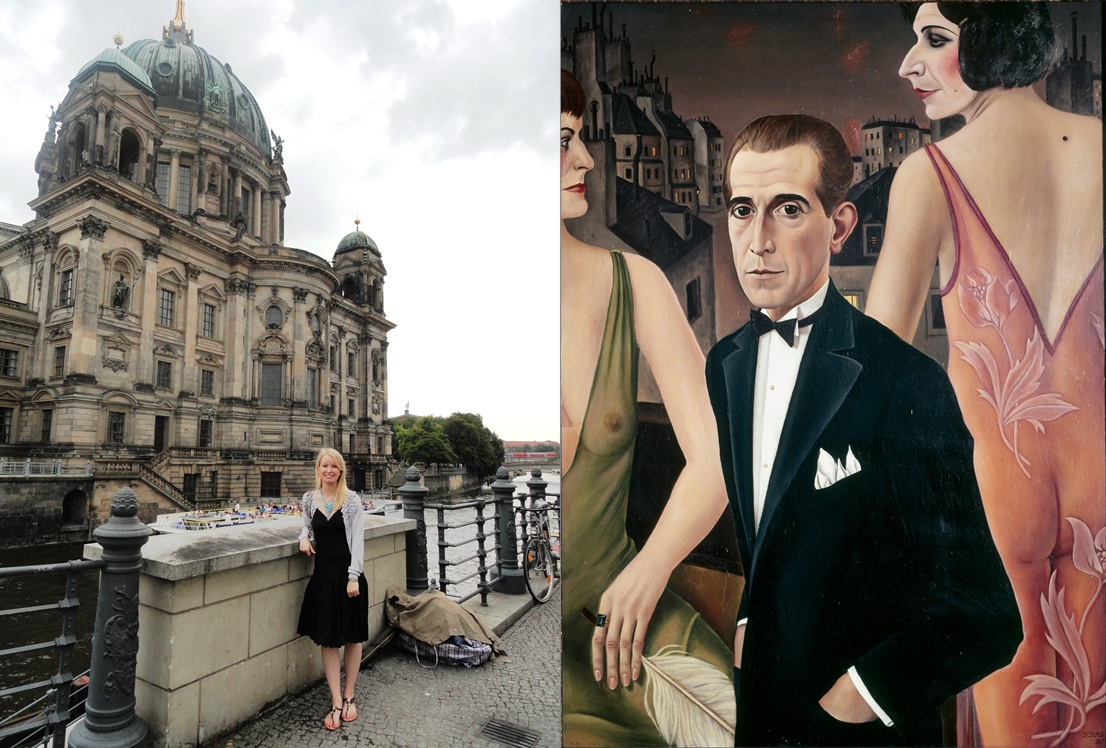
Tell us a bit about your journey as an author. How did you go from writing ghost stories to this?
My first book, Haunted Delaware, was a collection of "true" ghost stories that I self-published in high school. Many of them required historical research--I included well-known ghost stories from Delaware's historical homes, including Woodburn, the governor's mansion. Woodburn and others had been stops on the Underground Railroad. I was thus primed to dive into historical fiction with my next endeavor, a novel set during the Spanish Flu pandemic in Philadelphia. That one didn't find a publisher, perhaps rightly so! I wrote it before I went to Boston University to pursue my MFA in Creative Writing, which improved my writing exponentially. At BU I began writing short stories featuring Berni, Grete, and Anita and included them in my master's thesis. These stories eventually found a central plot and became Fraulein M..
How much research did Fraulein M. require from you?
Quite a bit. I'd been to Germany a few times before, but this required a special research trip to Berlin (which I had the pleasure of doing with my grandmother). Of course, much of the Berlin of my novel is gone today, having been destroyed in the war, but I could still interview people who were there, ride the U-bahn, visit remaining landmarks, and get the lay of the land. For everything else, I turned to books written in the time period, which helped me discover not only what people ate and wore, but how they felt when, say, they saw their friends arrested or their favorite bars permanently closed. My favorites were The Artificial Silk Girl by Irmgard Keun, Some Girls, Some Hats, and Hitler by Trudi Kanter, and The Berlin Stories by Christopher Isherwood.

Besides writing, what other secret skills do you have?
I suppose it's related: spelling. I was speller number 22 in 1996 and 1997 in the Scripps National Spelling Bee, representing the state of Delaware. My goal in '97 was to get far enough in the bee to make it onto ESPN, because I figured this was my one chance in life to appear on that network. Sadly, I was eliminated two rounds too soon. The word that got me was "codicology."
Fraulein M. was your debut novel - what has the experience been like?
It's been extraordinary. For a while I didn't know if this book would be published, and it's amazing to hear strangers speak to me about Berni and Grete as though they're mutual friends.
Your book explores deeper themes such as family bonds and compromises made in order to survive. Why did you find this important to write about?
I think family bonds can test our sense of morality in a way that almost nothing else can. We'd all like to believe we'd have been on the right side of history in 1930s Berlin, but what if a close family member had been a Nazi? Would we have had the fortitude to stop them, to disown them, to leave them out of our own plans to escape? It's easy to think you'd act nobly when facing a stranger, an unnamed Nazi in uniform. It's much more difficult to imagine choosing what's right over who's family.
Which famous person, living or dead, would you like to meet and why?
I'd love to go back in time and meet Dr. Magnus Hirschfeld, founder of the Institute of Sex Research in Berlin. Hirschfeld was way ahead of his time; the institute provided group counseling, hormone therapy, contraception, sex therapy, all while providing a safe haven for trans Germans. Hirschfeld invented the term "transvestite" and campaigned for Germany to remove Paragraph 175--which criminalized homosexuality between men--from its penal code. He died in exile after Hitler came to power, seized his institute, and burned his library.
Do you have any interesting writing habits? Favorite writing spot / time of day to write? Do you stick to a certain word count?
I always write in the morning, and the best place for me to work is in a quiet library. When I lived in Boston, I used the Harvard library system. And I can only write 1,300 words in a day (about three to four double-spaced pages in Microsoft Word, which is what I use). If I go beyond that, it's like my battery has run out.
What are you working on right now?
I'm working on a literary mystery set in Wilmington, Delaware in 1960.
Where can our readers discover more of your work or interact with it?
On my website (www.carolinewoodswriter.com), I have links to my other work, which ranges from a video for The Scene speculating where the Babysitters Club members are now to a short story written from the point of view of Bubbles, Michael Jackson's former pet chimpanzee.
